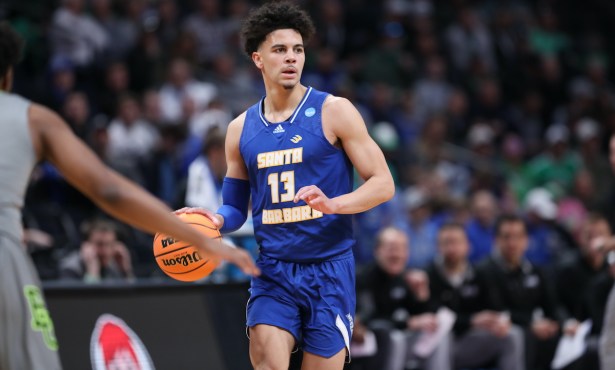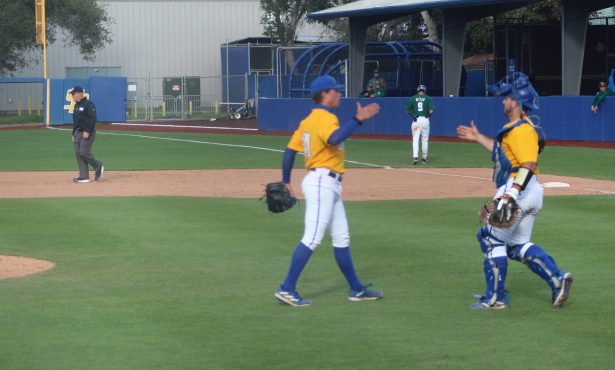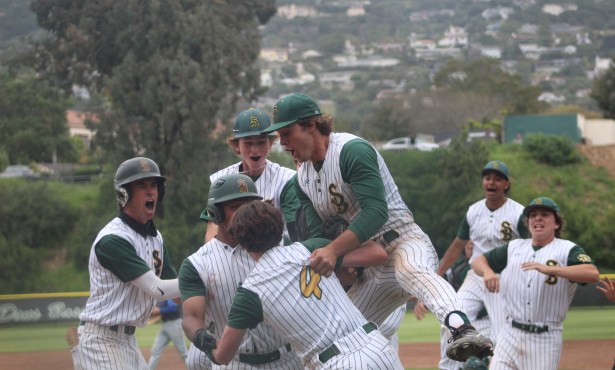Superior Athletics, Shoestring Budgets
UCSB Coaches Create Winning Teams with Limited Resources
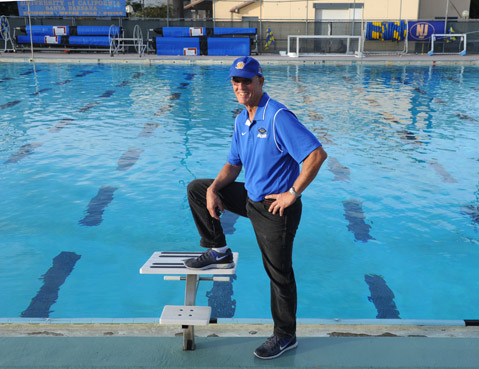
Gregg Wilson remembers exactly the budget he was given as coach of the UCSB men’s swimming and diving team in 1975. “It was $1,592, and it covered everything — all travel, meals, equipment, telephone, postage …. But it didn’t matter to me. I had a job in paradise.”
Wilson’s first team went 0-9 in dual meets. “The kids called themselves the F Troop [a ragtag army unit in a TV show of that name],” he said. “There was only one way for me to go. I had to work to get there. My main job was teaching physical-activity classes. I’d go home at night, make calls, and write letters. I kept track. I was putting in 94 hours a week.”
Wilson escaped the grind in 1983. He took a job as aquatics supervisor at UC Berkeley, his alma mater. “I didn’t have to teach,” he said. “I was in charge of lifeguards and pool scheduling. Forty hours a week!” Less than a year later, he returned to UCSB. “I missed the challenge that coaching presented,” he said. “I missed having an influence in kids’ lives.”
Beginning in 1984, Wilson took over the women’s as well as the men’s swimming teams. He’s still working at it in his 39th season as a coach. He has compiled an enviable record in the Big West and Mountain Pacific leagues — 26 men’s and 13 women’s team championships. But in the big picture of Division 1 NCAA competition, surrounded by such powerhouse programs as UCLA, USC, Stanford, and Cal, the challenge UCSB coaches face is to survive with limited resources.
“All of us coaches have to fundraise for our existence to help pay for assistant coaches, additional scholarships, and equipment,” Wilson said. “We can’t buy elite swimmers. We can try to get good athletes to come to an elite academic institution by the ocean.”
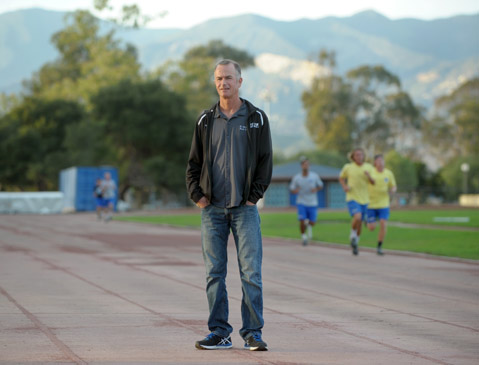
Pete Dolan has been head coach of UCSB’s track-and-field and cross-country teams for 28 years. All four teams have won conference titles, including men’s cross-country this fall. They finished seventh out of 29 teams in the NCAA Regional, ahead of Cal, Washington State, and Arizona.
UCSB’s track facility has been inadequate to stage home meets for several years. An upgrade is slated. “How do we do it?” Dolan said. “We don’t complain. If the track has only three usable lanes, we’ll use them. We bring in people who believe in us, and I believe in them. Boys to men, girls to women — it’s so rewarding to be part of that process.”
Two recent Gaucho graduates, 800-meter runner Ryan Martin and heptathlete Barbara Nwaba, are genuine Olympic contenders. A pair of multiple Olympic medalists, breaststroker Richard Schroeder and freestyle great Jason Lezak, have come out of Wilson’s swimming program.
Dolan wishes he had more to work with, but he said, “I don’t go to sleep angry. Hey, it’s my choice to be here. I get up and run every day along the bluffs. I can go surfing and paddleboarding. That’s part of my pay.”
Two of UCSB’s most successful coaches over a long haul have retired. Kathy Gregory took over women’s volleyball the same year Wilson was hired and plugged away for 38 years, landing the Gauchos in the NCAA tournament 26 times. Mark French lifted women’s basketball from the bottom of the league to 12 NCAA tournament appearances before retiring after 21 seasons in 2007.
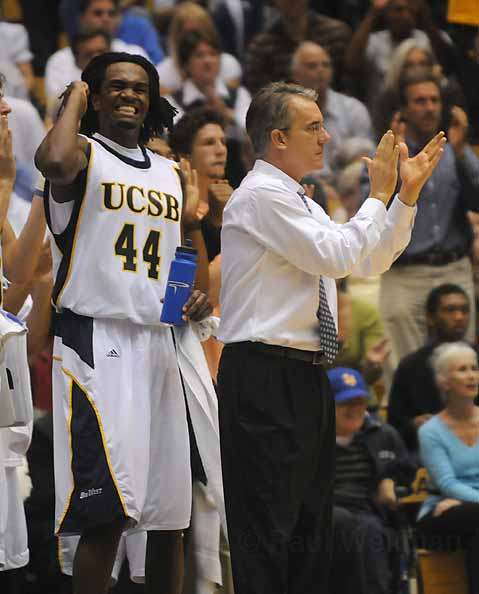
Bob Williams, whose 17-year tenure as UCSB men’s basketball coach is the longest of any active Division 1 coach on the West Coast, counts as a survivor. His sport is the university’s most important in terms of revenue and recognition — and the most challenging because of intense competition among 350 schools to get a piece of March Madness. The Gauchos have gone to the NCAA tournament three times under Williams. This year’s team has the potential for a banner season despite a 0-2 start (a 10-point defeat at No. 5 Kansas and an overtime loss at Florida Gulf Coast). NBA scouts have been turning out in droves to watch Alan “Big Al” Williams, UCSB’s 6’8”, 265-pound senior forward, and he has not disappointed them, averaging a robust 25.5 points and 14.5 rebounds.
“Bob Williams did it the Gaucho way,” Wilson said. “You hustle, beat the bushes, discover some talent, coach them up, and sometimes you get lucky.”
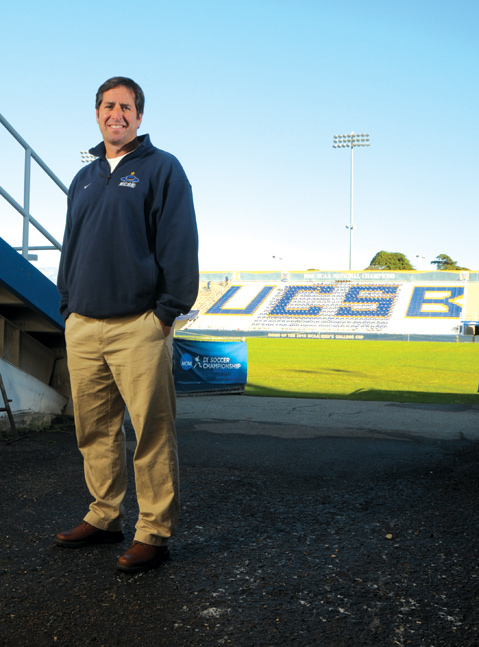
Tim Vom Steeg is UCSB’s most thriving current coach after 16 seasons of men’s soccer. Through aggressive recruiting and fundraising, he has built a winning program that snagged an NCAA championship in 2006 and has led the nation in attendance for eight consecutive years.
Fourth-year baseball coach Andrew Checketts would like to see the Gauchos host an NCAA Regional. He has the talent to do it, as well as the schedule — bringing Brigham Young University, Kentucky, USC, and Oregon to town in 2015 — but Caesar Uyesaka Stadium needs lights. A committee of Gaucho baseball fans has been scrambling to raise $500,000 by the end of the month so that lights can be installed during the season. “We need a big donor to step up,” Checketts said.
Sometime in the next month or two, UCSB will name a man or woman who will determine whether the Gauchos thrive, survive, or wither in the future. That person will be the new athletics director (AD), replacing Gary Cunningham, who has filled in as the interim AD since July.
“We want to get this one right,” said Wilson, who’s on a search committee that is interviewing six candidates for the position. “We need to bring in somebody who can lead, who can put together a plan of attack; somebody who understands the academic rigors of the university and works well with the chancellor, administrators, and coaches; someone who is presentable to the public and very good at raising money.”
Wilson may find himself surviving in a different way if a new era prolongs his enthusiasm. “I’m not sure I could handle retirement,” he said. “They might have to push me on the pool deck in a wheelchair with an oxygen canister.”

